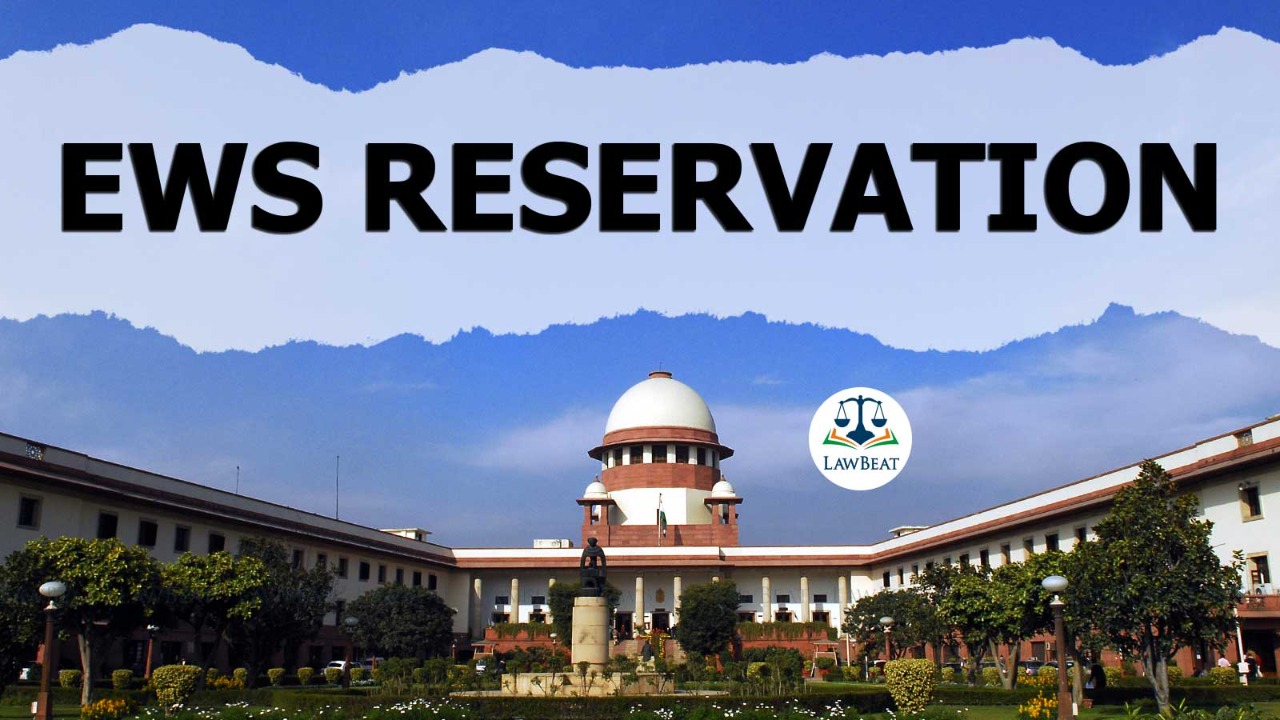EWS: Supreme Court upholds validity of 103rd Amendment by a majority with 3:2 ratio

In view of the decision rendered by the majority, the challenge to the 103rd Amendment fails, read the operative part of the judgment.
Upholding the validtiy of the 103rd Constitutional Amendment that introduced 10% reservation for Economically Weaker Sections (EWS), the Supreme Court, today, pronounced its judgment by a majority with a 3:2 ratio.
A Constitution Bench led by CJI U.U. Lalit, also comprising of Justices Dinesh Maheshwari, S Ravindra Bhat, Bela M Trivedi and JB Pardiwala, in separate judgments gave its verdict. However, Justice Ravindra Bhat in a dissenting judgment, held the amendment to be incorrect and not in line with Baba Ambedkar's dream. While Justices Maheshwari, Bela M. Trivedi, and JB Pardiwala in concurring judgments, uphled the validity of the reservations.
While pronouncing the operative part of the judgment, CJI read, "In view of the decision rendered by the majority, the challenge to the 103rd Amendment fails. The writ petition ad other proceedings stands disposed of accordingly".
On September 27, a five-judge Bench (Constitution Bench) of Chief Justice of India UU Lalit, Justices Dinesh Maheshwari, S Ravindra Bhat, Bela M Trivedi and JB Pardiwala heard a petition (along with a batch of other petitions as connected matters) challenging the 103rd Constitutional Amendment that introduced 10% reservation for Economically Weaker Sections (EWS) in higher education and government jobs.
The Court had reserved his judgment on the matter after hearing, and further directed Advocate Shadan along with Advocate Kanu Aggarwal to prepare a concise written compilation in 2-3 days. The Bench remarked, "we started with say 1 unit, today we are 20, we want you to put that in concise form".
Advocate VK Biju submitted that Poverty should be the foundation and the basis of reservation. And said that it is the right of the individuals, and if the other party comes in between or objects to that right, he would say, “Now you are coming qua democratically passed bill”. He further read Sinho Commission reports, to substantiate the intention of extending reservation to the Economically Weaker Section. And cited Kerala as an example where people have asked for reservations on the basis of economic criteria and not caste.
Case Title: Janhit Abhiyan vs Union of India
